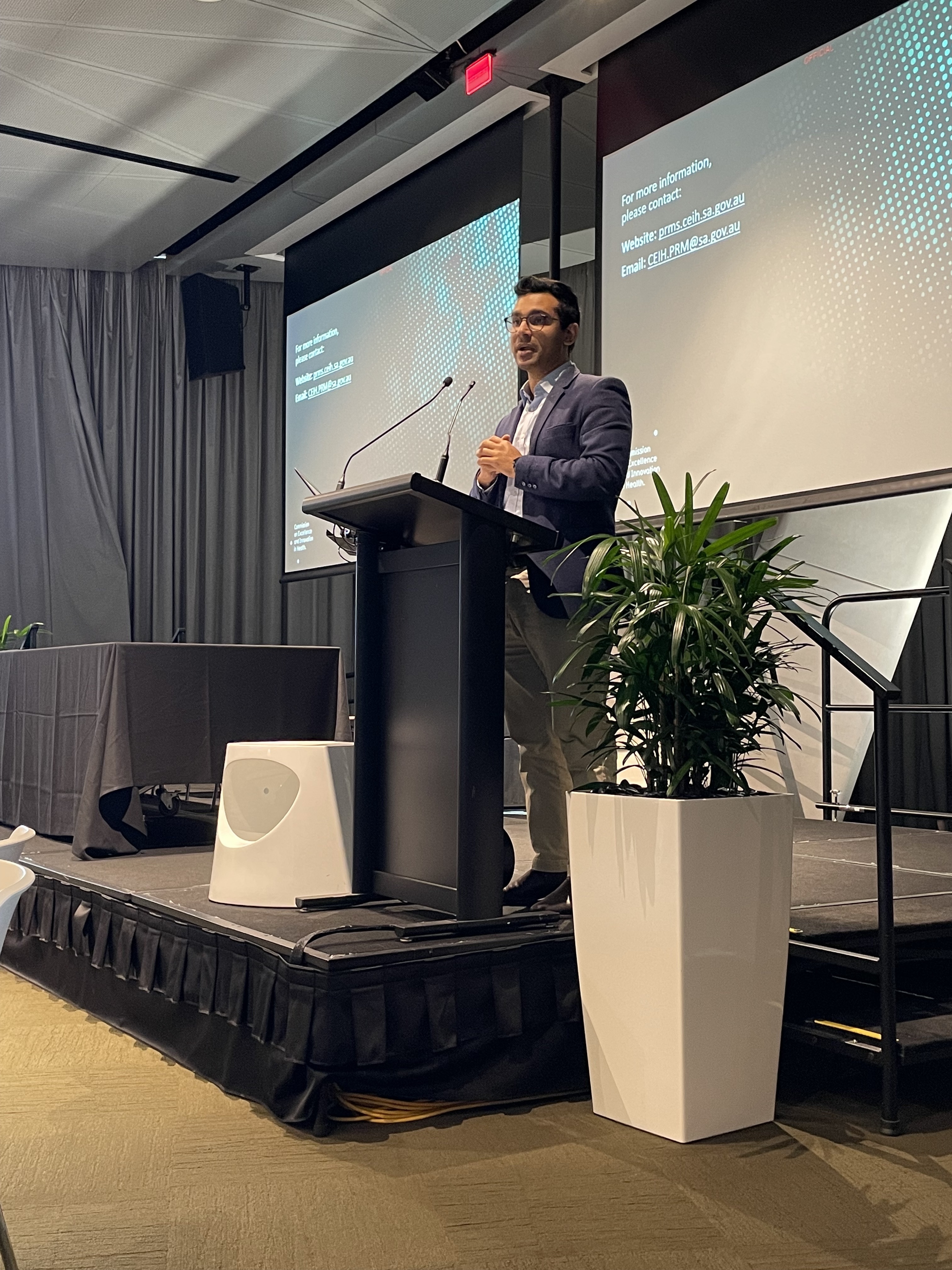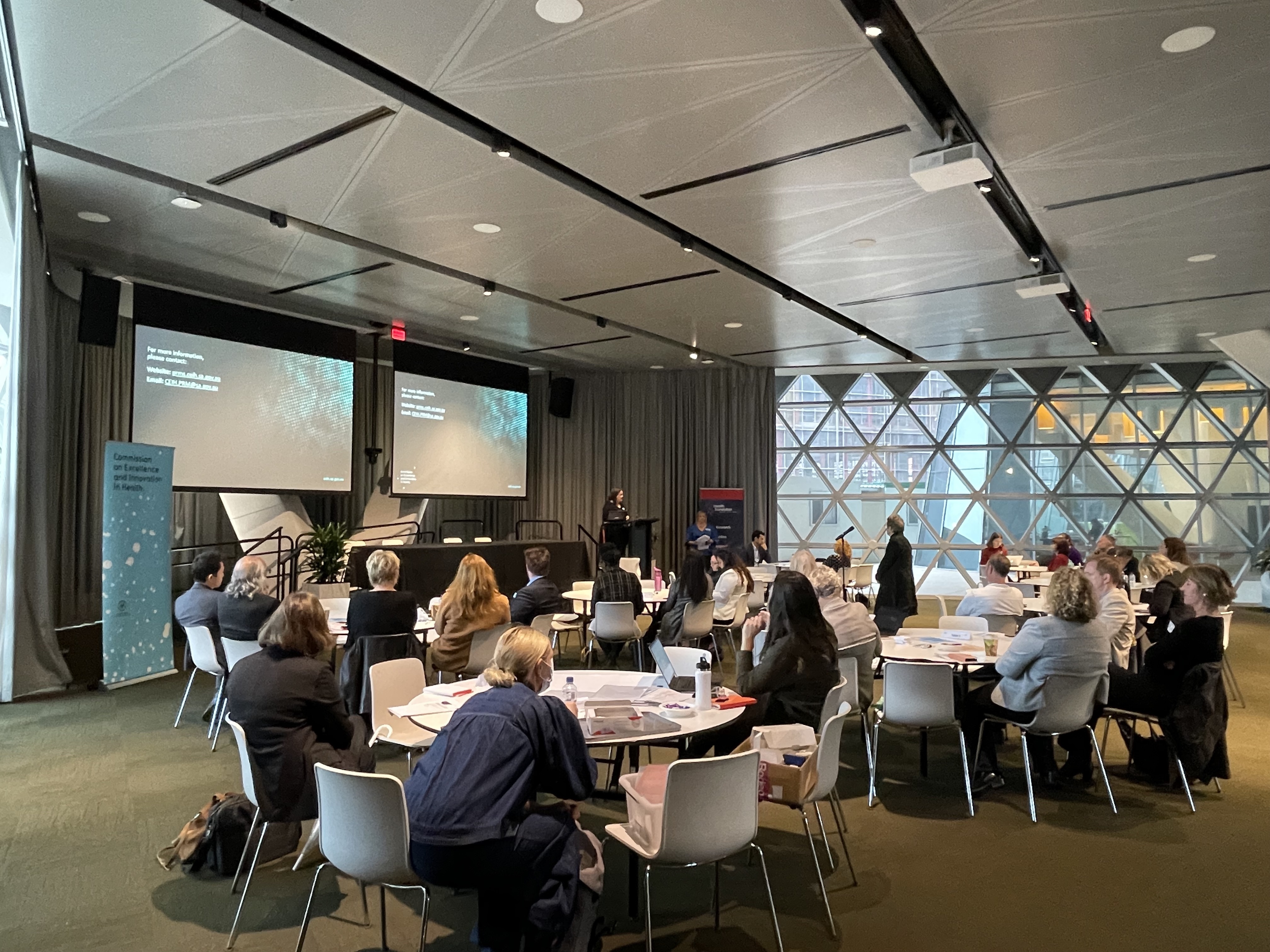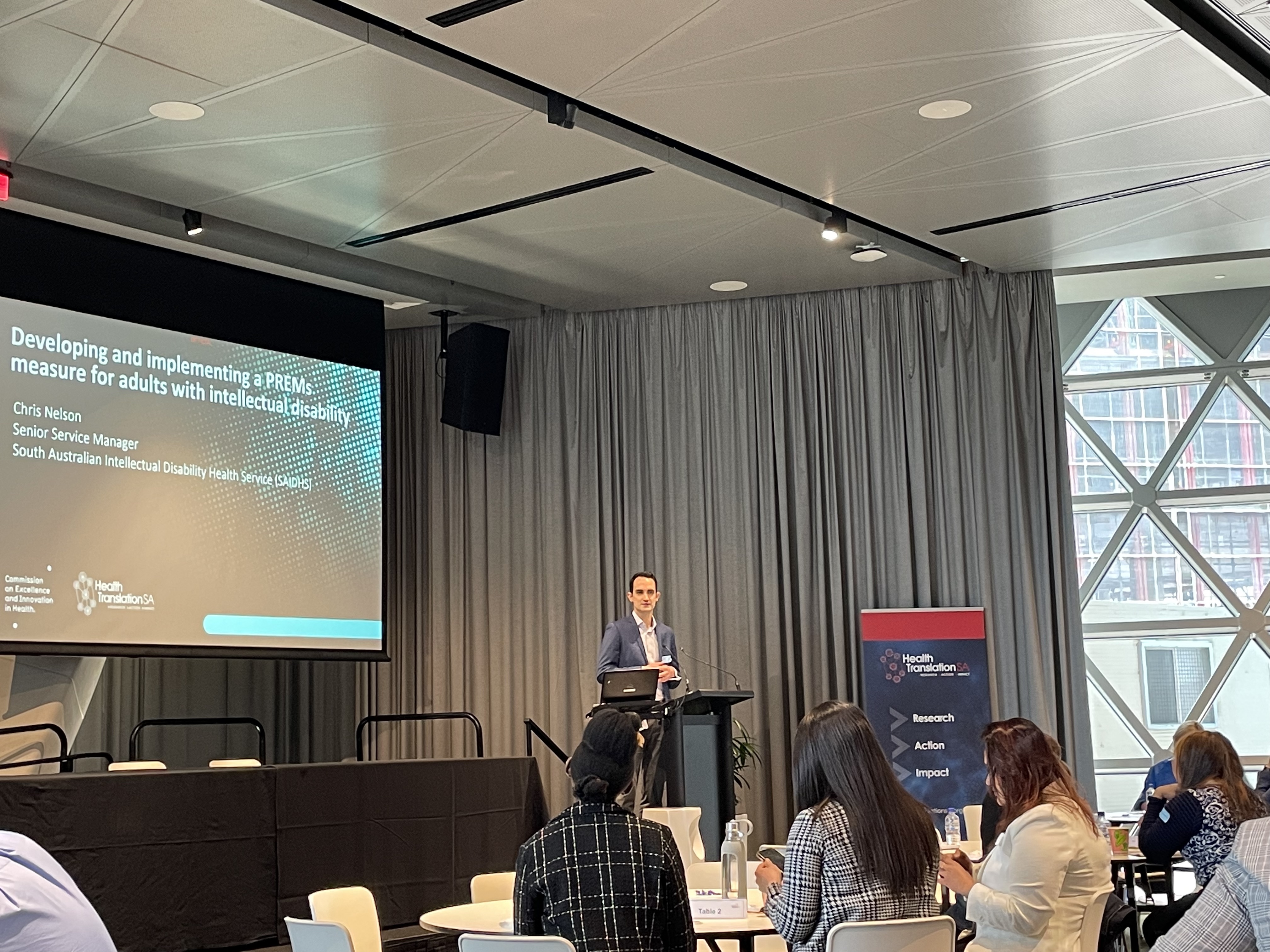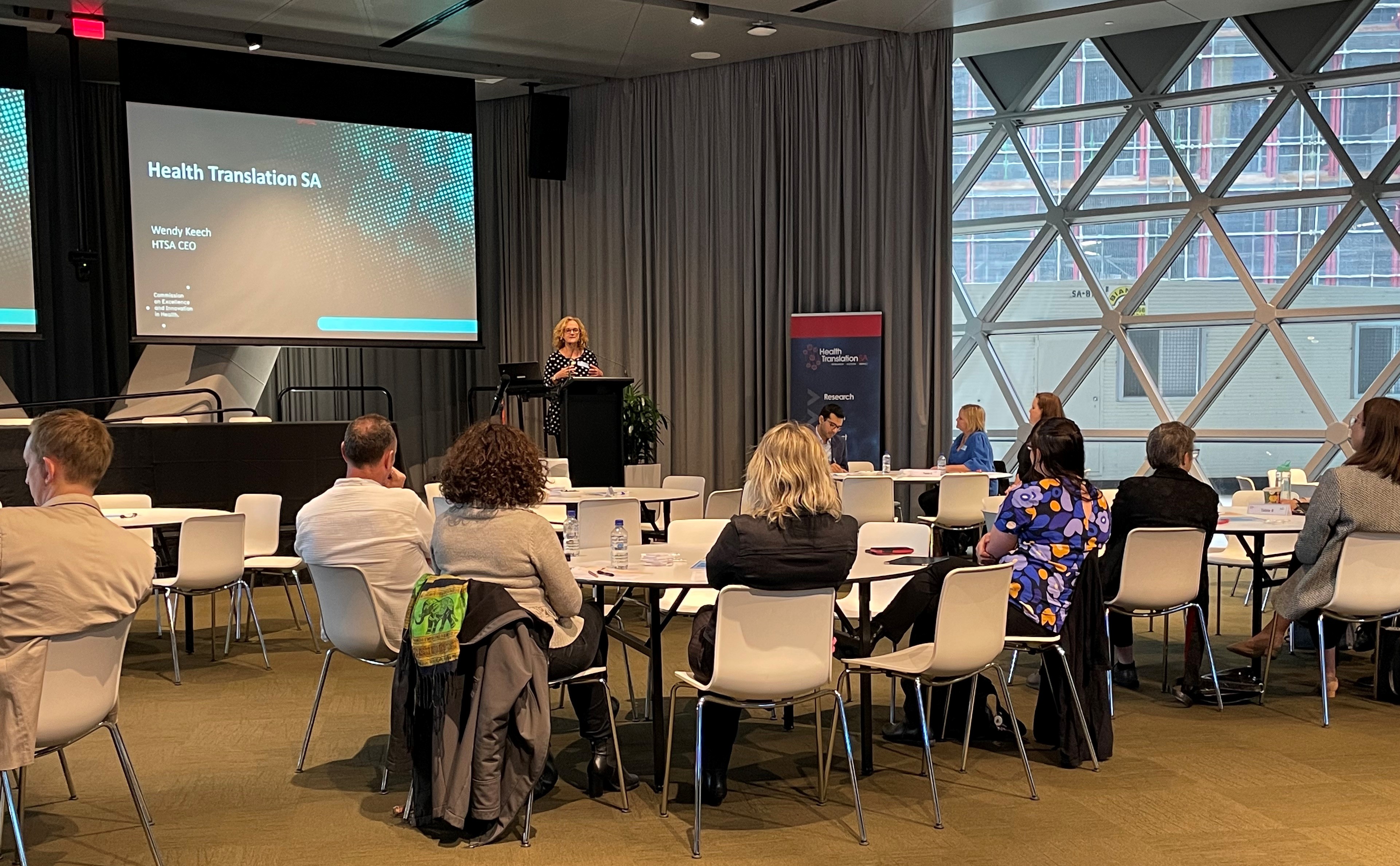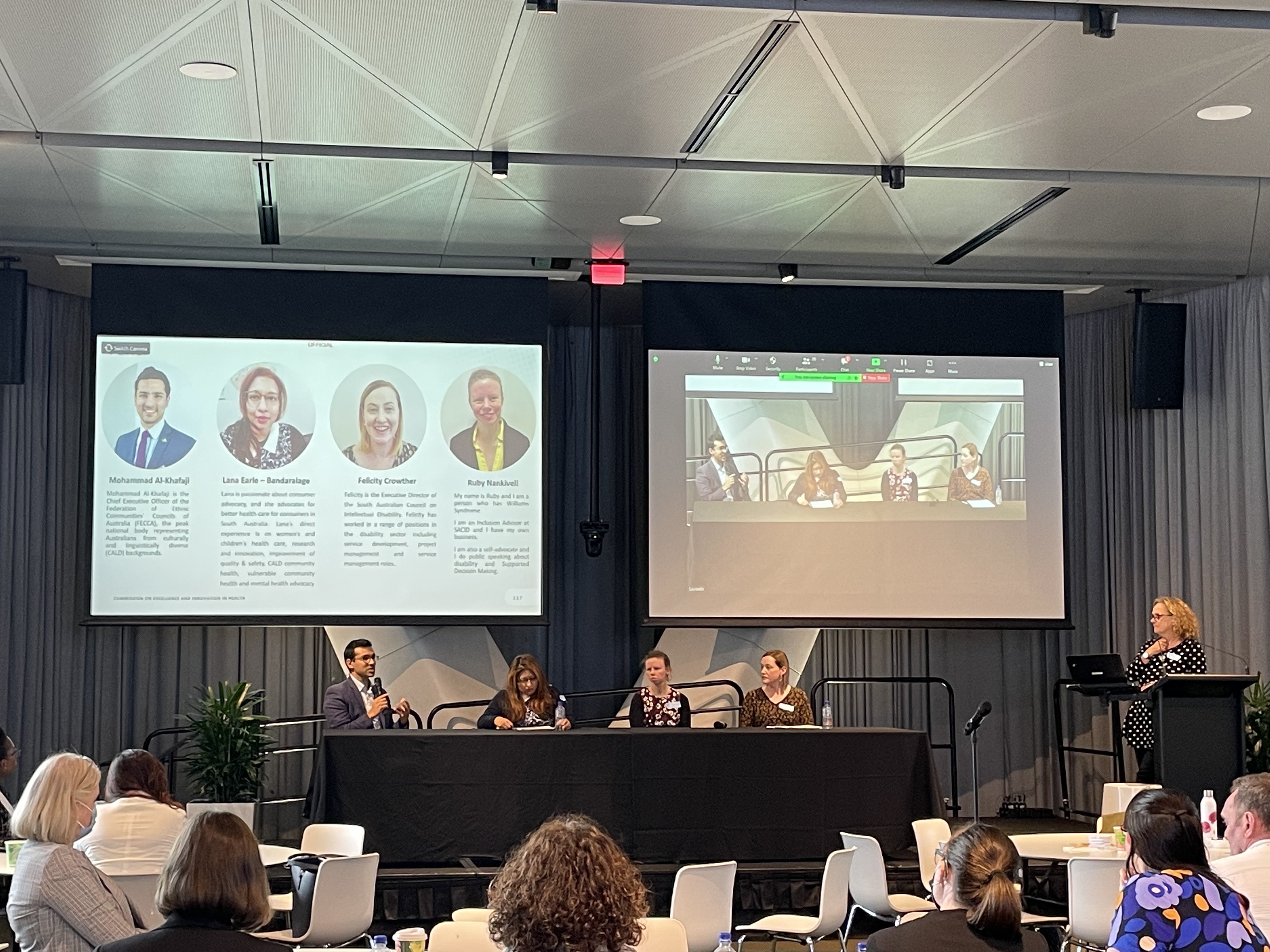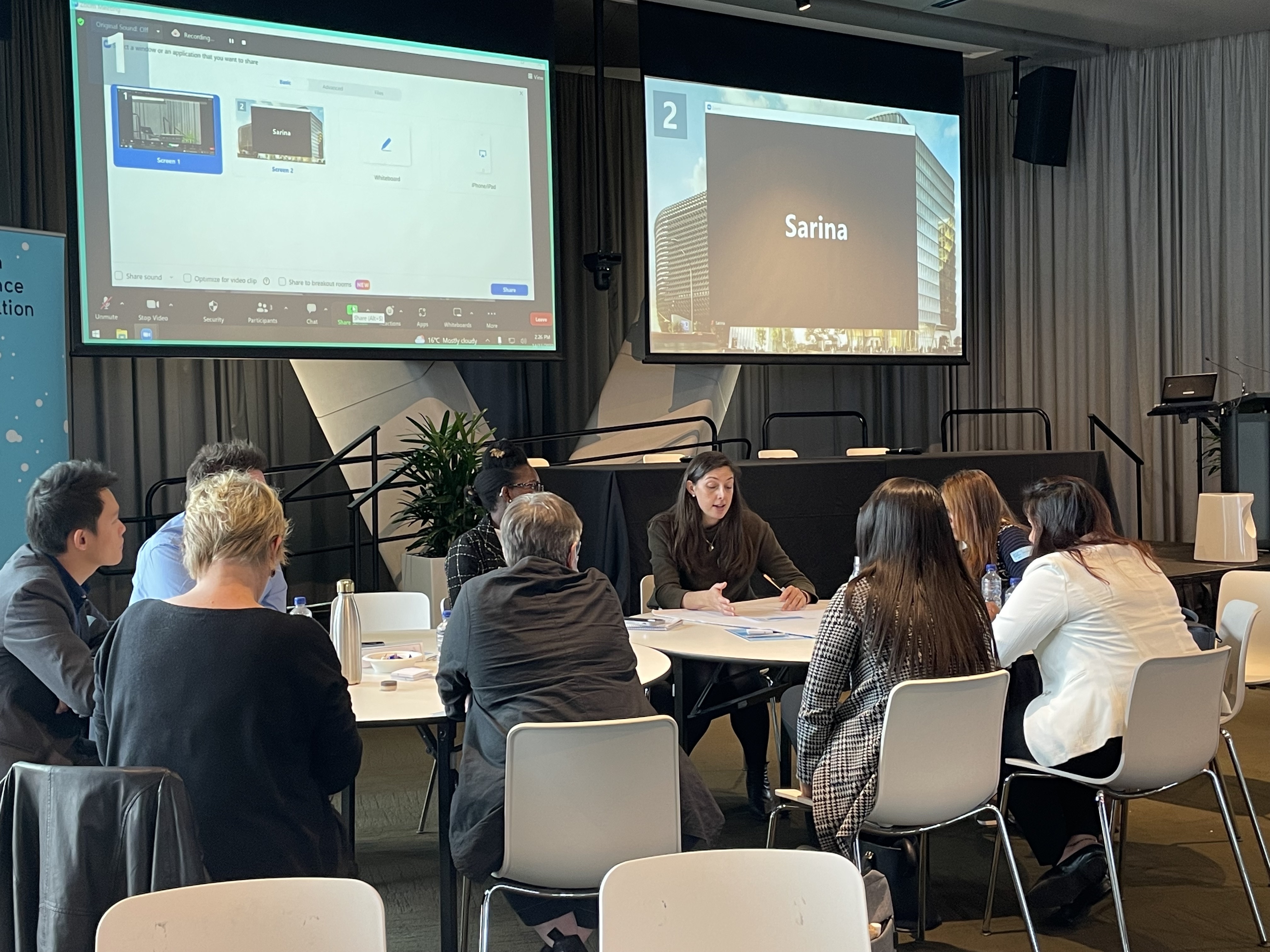Presented in partnership with:
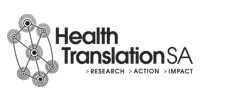
The Commission on Excellence and Innovation in Health (CEIH) and Health Translation SA hosted the second Patient Reported Measures (PRMs) Research Collaborative Symposium at SAHMRI on 14 November 2022. The Symposium focused on the theme:
Using patient-reported measures to improve health care for culturally and linguistically diverse (CALD) populations, people living with disability and First Nations peoples.
Keynote speaker Mohammad Al-Khafaji, CEO of the Federation of Ethnic Communities’ Councils of Australia (FECCA), set the tone for the day with his statement “diversity is a fact; inclusion is a choice!”
Mohammed provided valuable insights into challenges faced by CALD communities when interacting with the healthcare and research sectors, ahead of presentations from a fantastic range of health professionals with expertise in engaging with underrepresented populations (read about all the speakers in the day’s program and see videos of all presentations in the section below).
Presenters highlighted the importance of adapting communication to improve individuals’ access, participation and inclusion in their own health care. They described how patient-reported measures are being used drive understanding of specific populations’ needs and innovations in service provision and research.
Our PRM Research Collaborative Grant winners, Haematology Nurse Practitioner Nicole Loft and lived experience patient safety advocate Andrew Knox, presented the aims of their study which is centred on better understanding the unexpressed needs of cancer patients by engaging with people who have been through stem cell transplants.
A panel session and interactive workshop in the afternoon provided more opportunity to share lived experiences, tips and recommendations for working with groups with unique needs and circumstances. Feedback included the importance of always considering the individual, allowing appropriate time for engagement, and including consumers in every conversation. Easy read information was a prominent theme of discussion, enabling better co-design in research and supporting inclusion and accessibility.
